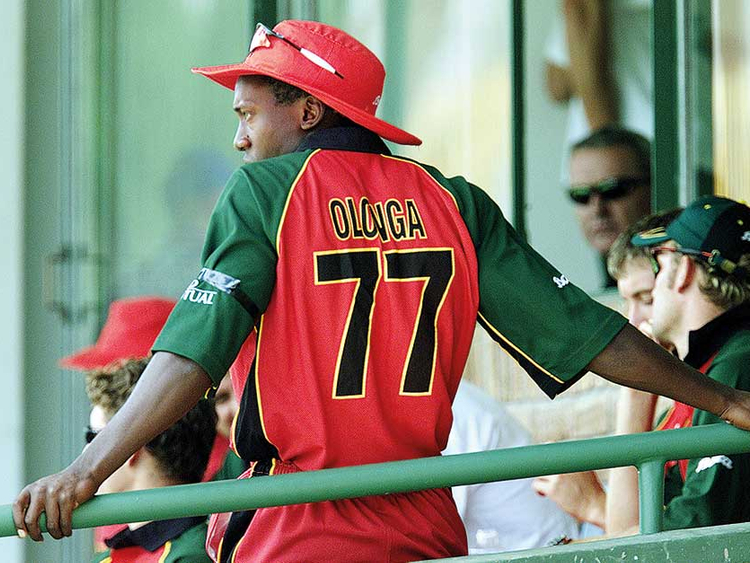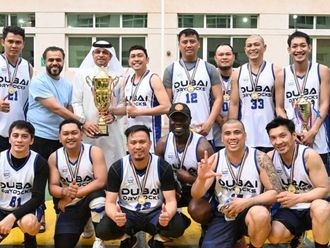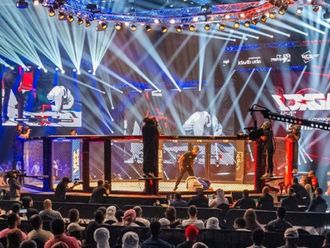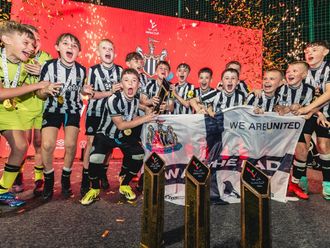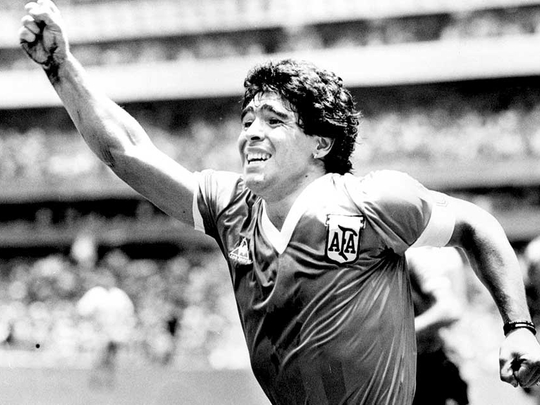
Dubai: Last week US athletes from American football, baseball and basketball went down on one knee en masse during the US national anthem to continue drawing attention to the Black Lives Matter movement after President Donald Trump pressured team owners to sack players who don’t stand for the ‘Star Spangled Banner’. It followed Golden State Warriors point guard Stephen Curry’s refusal to go to the White House to meet Trump. This week FC Barcelona joined a Catalonia-wide strike and played a match behind closed doors after the riots that followed a referendum for independence from Spain. And Catalan-born Spain and Barca defender Gerard Pique was heckled by national team fans in training after casting his vote in the poll. In light of this, we take a look at others who have taken a stand in sport and how they succeeded in highlighting causes they felt deeply about.
Muhammad Ali
Already a voice and symbol of African American pride during the civil rights movement, Ali further rattled the white establishment when he refused to be drafted into the US military, citing his objection to America’s involvement in the Vietnam war in 1966. He was arrested, found guilty of draft evasion, and stripped of his titles. On appeal, the Supreme Court overturned the conviction in 1971 but, by then, the height of his career was over.
Maradona
Coming just four years after the Falklands War, the 1986 Fifa World Cup quarter-final between Argentina and England was stoked with acrimony. Argentina’s Diego Maradona was vocally opposed to Britain’s occupation of the Falklands and vowed to beat England by any means. Maradona used his hand to get the opener and, after the game, which Argentina won 2-1, he said the goal came a little from his head and a little from the “hand of God”.
Tommie Smith and John Carlos
US sprinters Tommie Smith and John Carlos both used their moment on the podium at the 1968 Olympics in Mexico City to raise a black-gloved fist during the American national anthem, after winning respective gold and bronze medals in the 200-metre final. They did this in protest at racial inequality in the US. Both were stripped of their medals and received widespread condemnation, including death threats, but over time they were praised for their actions.
James McClean
Republic of Ireland winger James McClean grew up in Derry, Northern Ireland, the scene of the Bloody Sunday massacre that saw 13 civilians shot dead by British troops during a civil rights march in 1972. Because of this, when McClean moved to English Premier League side Sunderland in 2011, he refused to wear a remembrance poppy on his shirt to commemorate members of the armed forces lost in battle. He persists with this stand despite angering fans.
Andy Flower and Henry Olonga
Zimbabwe’s most successful cricketer Andy Flower and the country’s first black player Henry Olonga both wore black armbands in protest at dictator Robert Mugabe’s regime, during Zimbabwe’s hosting of their first World Cup match against Namibia in Harare in 2003. Both felt they had a moral obligation to draw attention to what was happening under Mugabe. They were lauded internationally but condemned inside Zimbabwe, and both had to quit the team and leave the country.
Colin Kaepernick
American National Football League quarterback Colin Kaepernick refused to stand during the US national anthem at the start of games last year in protest at the oppression of people of colour in the US. Kaepernick had played for the San Francisco 49ers for six years, but is now a free agent and looks set to remain that way after President Donald Trump vowed to use twitter to create a public relations crisis for anyone that signed him.
Carlos Delgado
Puerto Rican Major League Baseball hitter Carlos Delgado was opposed to the presence of US naval ships around the Puerto Rican island of Vieques and also took issue at US wars with Iraq and Afghanistan in 2004. In protest, the Toronto Blue Jays player started staying in the dugout during the US national anthem before games. Despite widespread abuse for his actions, he still went on to play for the Florida Marlins and the New York Jets.
Cathy Freeman
Indigenous Australian sprinter Cathy Freeman raised eyebrows at the 1994 Commonwealth Games in Canada when she flew the Aboriginal flag as well as an Australian one on her lap of honour following her 200-metre final win. Unrecognised flags aren’t authorised at events, but she ignored the rules to help bring attention to the plight of Australia’s indigenous people. Australia chose to embrace her statement and picked her to light the Olympic flame at the Sydney 2000 Olympics.
Le Bron James
The American NBA star was the most prominent in a group of Cleveland Cavalier players to wear ‘I can’t breathe’ T-shirts before a match in reference to the last words of Eric Garner, who died in 2014 following a confrontation with New York Police. James had taken a similar stance while at Miami Heat in 2012, posing with the entire team in hoodies, to protest against the death of Trayvon Martin, in a similar case of police brutality.
Stedman Bailey
The American NFL wide receiver came out of the tunnel with four of his St. Louis Rams teammates holding their hands aloft in a ‘hands up, don’t shoot’ motion after unarmed teen Michael Brown was shot dead by police, prompting protests in Ferguson, Missouri, in 2014. Ironically, Bailey’s career was cut short a year later after sustaining life-threatening injuries from gunshot wounds after a car pulled up alongside side his in Florida and its occupants opened fire.


